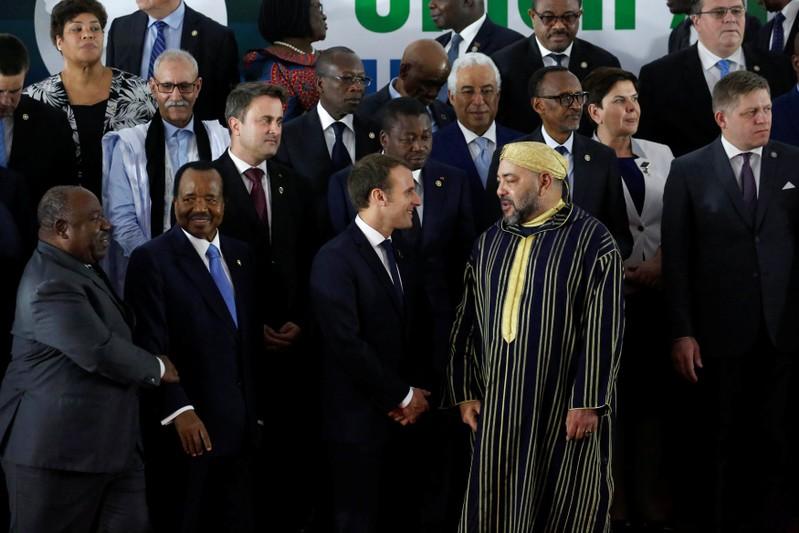
EU, AU delegates debate sustainable solutions to curb migration

Many of the migrants arriving in Europe after a deadly cross of the Mediterranean Sea have had harrowing experiences after leaving home in search of a better life in Europe.
Abdoulaye Dosso was driven for weeks through the Sahara after being captured by traffickers. He says he and many other migrants were traded like livestock by their captors.
In Libya, he played dead to survive as rebels shot at other migrants. After their trip was intercepted by the Libyan coastguard, he was thrown in a crowded detention centre, dashing his dreams of reaching Europe. Abdoulaye is amongst the 161 Ivorian migrants who returned home to Abidjan, Cote d’Ivoire from Libya.
“We lived in a transit camp in Libya, and it was not a pleasant situation. I spent two months there in a camp in Tripoli, and that is where I understood that Europeans are the ones complicating things. They are the reason that we are not going back, that’s what I came to understand.” Dosso said.
Fresh reports of abuses against African migrants in Libya have sparked anger across the continent, outrage that is likely to lend urgency to talks on migration as European Union leaders meet their African Union counterparts this week.
Libyan authorities have promised to investigate the slavery allegations. But the European Union too has been the target of anger and frustration.
Despite the hardships they have experienced and faced with unemployment and poverty, many young people in Cote d’Ivoire say they would still attempt to go to Europe in search of a better life.
“I have Ivorian brothers and sisters who are still living there. When you see them coming back home, they build homes and have money. When you look at that and look at the house you live in, which is barely a house in a poor neighbourhood, you tell yourself that you can also go abroad and live like them, and that’s why I left for Europe,” He added
EU Parliament President Antonio Tajani recently renewed a call for a ‘Marshall Plan’ for Africa, stating that “Africa’s problems are also Europe’s.”
“We need to ask Europeans to help us. White people need to give money to our African leaders so that they can help us and then we won’t need to go anywhere. As long as they don’t give us money, even if the ocean was made out of electricity, we will continue to go there, because we are struggling here in our countries,” Serifou Sayindou and Abidjan resident said.
Such an approach reasons that raising incomes in Africa and creating opportunities there will keep would-be migrants at home. But as the European Union seeks to ramp up aid, much of that assistance is going to Africa’s security sectors charged with clamping down on migrant flows






